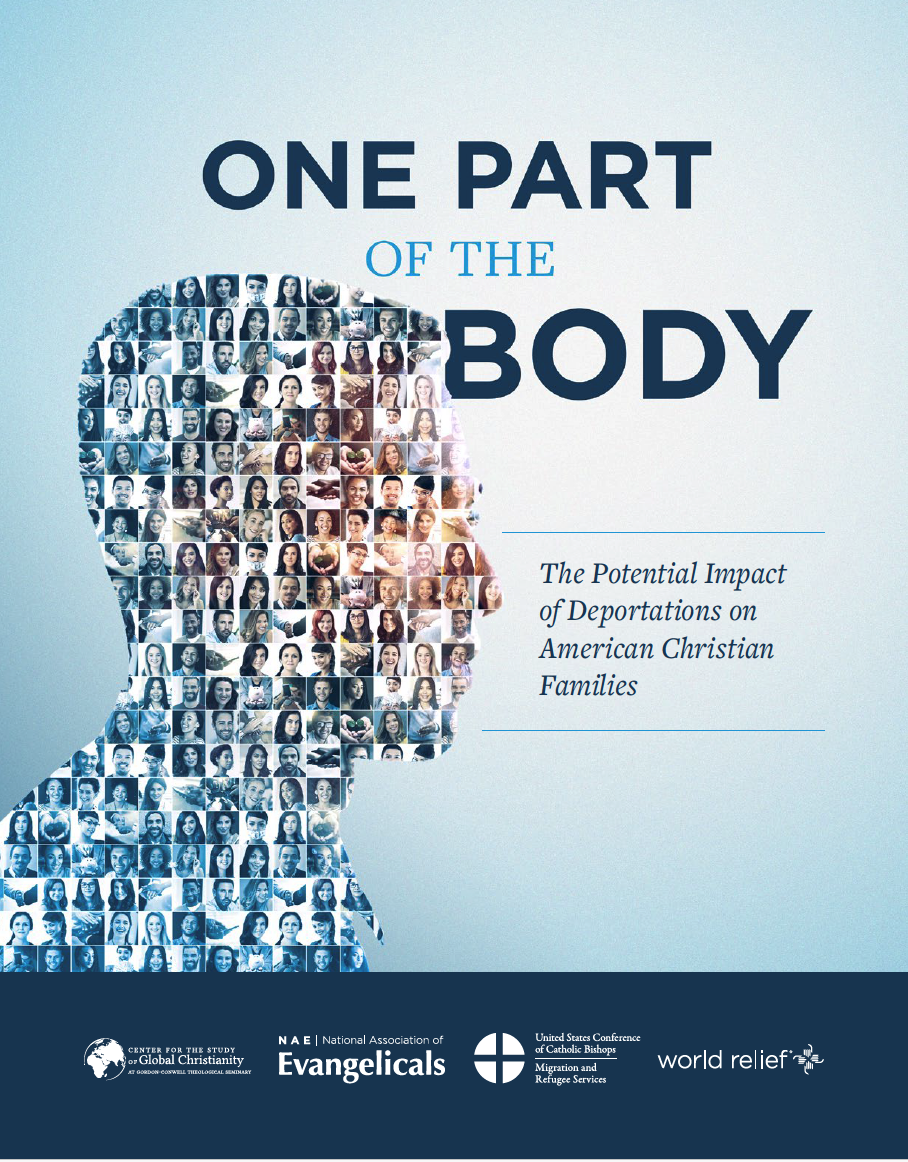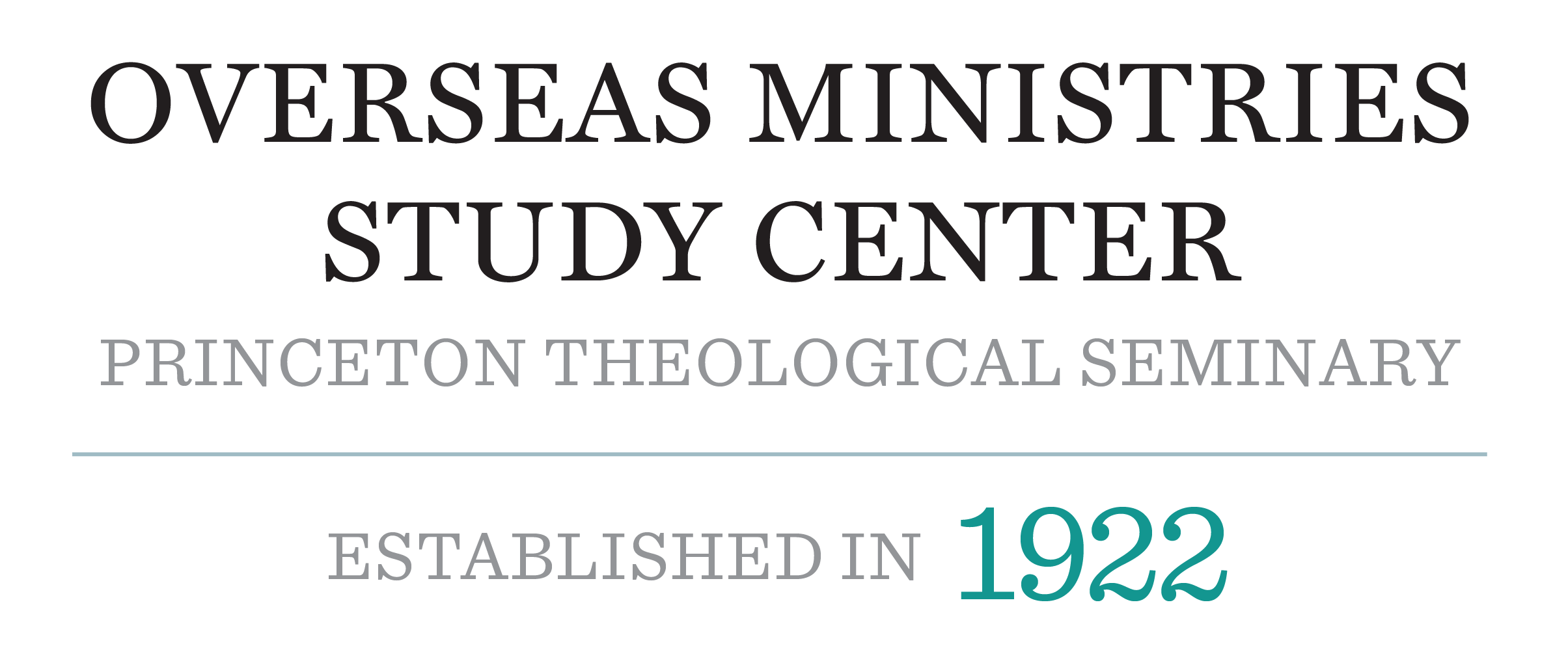 by Gina Zurlo, Ph.D. – Visiting Lecturer on World Christianity at Harvard Divinity School and Editor of the World Christian Database
by Gina Zurlo, Ph.D. – Visiting Lecturer on World Christianity at Harvard Divinity School and Editor of the World Christian Database
This post is part of The Occasional’s “Numbers and Trends” series, dedicated to sharing work, analysis, and perspectives from our friends and partners at the Center for the Study of Global Christianity based at Gordon-Conwell Theological Seminary.
Deportation has been in the news quite a lot recently. Check out these recent headlines:
- “Inside ICE Air: Flight Attendants on Deportation Planes Say Disaster is ‘Only a Matter of Time’” (ProPublica)
- “Judge Temporarily Blocks Trump from Ending Deportation Protections for Venezuelans: ‘Smacks of Racism’” (The Hill)
- “Trump Administration Tied Migrants to Gang Based Largely on Clothes or Tattoos, Papers Show” (New York Times)
- “Some Foreign College Students are Being Targeted for Deportation. What Rights do They Have?” (ABC News)
- “US Deports More Alleged Gang Members to El Salvador” (BBC)
- “’A-Plus or ‘Solid F’? Americans Offer Polarized Reaction to Trump Immigration Policies in First 100 Days” (Fox News)

These handful of articles were released within hours of each other, and there are hundreds more like them, every hour, every day in the United States and around the world. However, an under-reported aspect of all this deportation news is religion. What is the religious situation of those most vulnerable to deportation?
To answer this question, the Center for the Study of Global Christianity partnered with World Relief, the National Association of Evangelicals, and the United States Conference of Catholic Bishops on a new report to discern the religious affiliation of individuals in the US most at risk for deportation (access the report here). Using data from the World Christian Database, Pew Research Center, and FWD.us, the report finds that, at the end of 2024, there were more than 10 million Christian immigrants present in the United States who are vulnerable to deportation.
Overall, about 80% of all of those at risk of deportation are Christians, including about 61% who are Catholic, 13% who are Evangelical, and 7% who are adherents to other Christian traditions.
The report explains the categories of individuals currently present in the United States who could be vulnerable to deportation, including:
- Undocumented individuals who either entered unlawfully, without inspection, or who entered on a temporary visa but overstayed that visa
- Individuals who are currently lawfully present, but whose legal protections were granted by a past administration and could presumably be withdrawn by this administration, including Temporary Protected Status, parole, Deferred Action for Childhood Arrivals and Deferred Enforced Departure, each of which are explained in more detail within the report itself
- Individuals with a pending immigration court date, including many who are seeking asylum, who could be removed if they are not ultimately granted asylum or other relief in immigration court.
Furthermore, because many of these individuals live in households with U.S. citizens, Lawful Permanent Residents, or others who are generally not subject to deportation, the impact on American Christian households goes well beyond those directly at risk of deportation. The report finds that nearly 7 million U.S.-citizen Christians live within the same households of those at risk of deportation. Most of these U.S. citizens are spouses or minor children of the immigrant at risk of deportation.
Overall, one out of every 12 Christians in the U.S. — including one out of 18 Evangelical Christians and nearly one out of five Catholics — are vulnerable to deportation or could lose at least one family member if the United States government were to deport all those vulnerable to deportation without any change in law.
The report contains not only data, but also stories of Christians living in complete fear in the United States. Carlos Sanchez, for example, traveled to the US legally on a student visa and received Temporary Protected Status (TPS) that spared him returning home to face Venezuelan gang violence. He received a degree, pays taxes, has no criminal record, and is a committed Catholic, yet could be deported nonetheless. Ten million Christians, most of them from Central America and the Caribbean, face this uncertain future.




